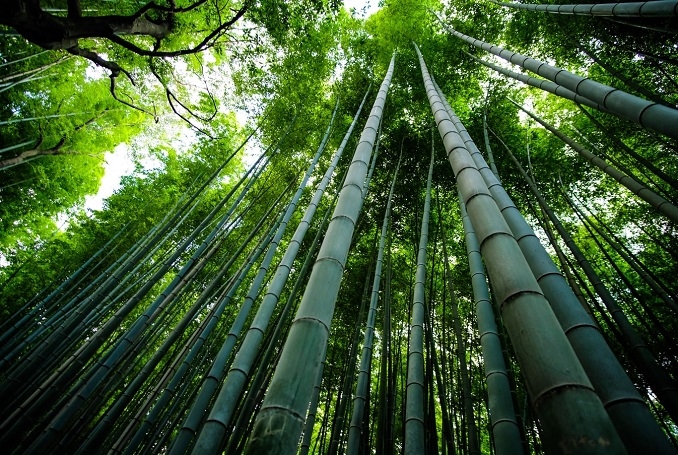BAMBOO The Sustainable ‘Superplant’
23 Sep 2024 12:36:31

By Vasavi Barde :
With over 1,000 species, bamboo is among the most useful plants for humans. It offers countless environmental, economic, and social benefits. From building materials to medicinal uses, bamboo has become a symbol of sustainability and resilience, making it a valuable asset in the fight against climate change and poverty reduction.
Bamboo comes in numerous varieties like the Moso Bamboo, the Black Bamboo the Golden Bamboo, Red Bamboo and the Yellow Bamboo. Cultivating bamboo requires careful attention. Planting should occur in areas with good sunlight and well-drained soil. Regular watering is crucial. It thrives in moist soil. As far as fertilisation goes, bamboo responds well to natural compost and nitrogen-rich fertilisers. Regular pruning is also necessary to control bamboo’s growth and maintain its shape.
This also promotes air circulation within the grove. then there is pest management. Although bamboo is generally resilient, natural pest control methods, such as neem oil or introducing predator insects, are recommended to protect the plants from pests like aphids or bamboo mites.
Bamboo is a highly versatile plant, and its products are widely used across different industries. Known for its durability and eco-friendly properties, bamboo flooring is a sustainable alternative to hardwood. Bamboo’s use to create furniture is well-known. Bamboo fibers are also used to make soft, breathable fabrics for clothing, towels, and bedding. These textiles are hypoallergenic and eco-friendly. Then there are paper and cardboard made from bamboo, reducing dependence on wood pulp. Lightweight and durable bamboo kitchen utensils such as cutting boards and chopsticks are moisture-resistant and long-lasting.
Bamboo’s unique properties allow it to be used in a variety of ways. It is used as a building material and for landscaping in gardens. Bamboo’s extensive root system helps prevent soil erosion, especially in areas prone to landslides or heavy rainfall. Bamboo also has natural filtering properties, making it useful for purifying water in eco-friendly filtration systems. The plant is so versatile that is also a food source.
Its shoots are a nutritious food source in many cultures, rich in vitamins, minerals, and fiber. Furthermore, bamboo extracts have anti-inflammatory and antioxidant properties, used in traditional medicine for centuries.
Bamboo provides a multitude of benefits across various sectors and the most important should be the environmental benefits. It absorbs more carbon dioxide and produces more oxygen than many other plants, playing a key role in carbon sequestration and climate change mitigation. It provides a source of livelihood to a countless many, especially in rural areas. artifacts made from bamboo are also widely, further providing a source of income to artisans.
World Bamboo Day was celebrated recently on September 18 and the plant is important indeed so as to have a day named after it. By raising awareness of its uses, benefits, and significance across different cultures, we can unlock bamboo’s full potential to create a more sustainable future.

Vasavi Barde
Youth Zone: Curated by Maithili Bisne
